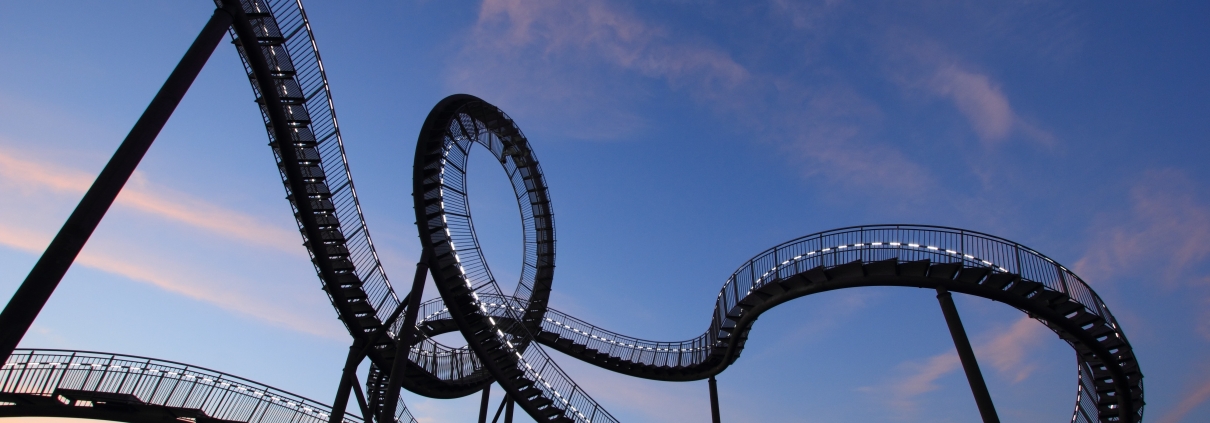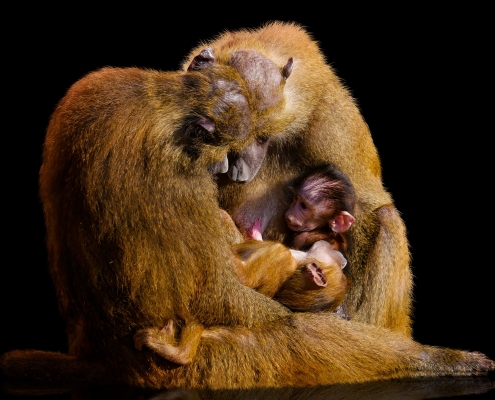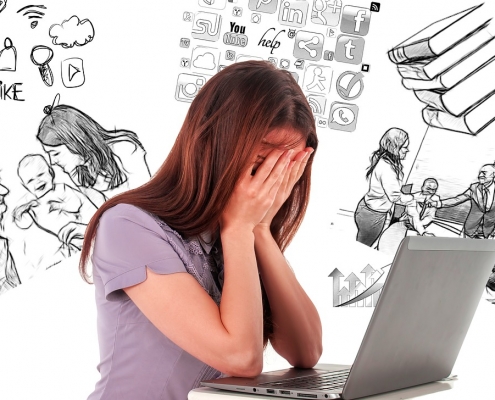Some tips on how to consciously ease the emotional rollercoaster during a pandemic.
"I said you shouldn't interfere. I have the right to some space! " - shouted Michał helplessly. Eve swallowed a tear and muttered in a muffled voice - "I understand that children and I take your freedom away. Okay, we won't interfere with your life anymore. " - Ewa slowly leaves the room, closing the door behind her ... Michał becomes even more dark when he hears a child's voice in the distance - "Mom ... but why can't I ask Dad about this one thing? Just this one ... "
Sounds familiar? This story of Michał and Ewa can happen to each of us, especially when suddenly changing external conditions force us to change our functioning. Limitation of living space, sense of lack of control, crisis at work, information overload, uncertainty of tomorrow, fear for the health of loved ones - all this is fertile soil for strong emotions and conflicts. Therefore, in this article we will look at how to balance our emotionality to prevent crazy rollercoaster riding.
Why do we even have emotions? Emotions are an evolutionary message with important content and enabling the species to survive. Under every emotion we experience lies the value or thought that we believe in. If instead of letting yourself be carried away unknowingly by a wave of difficult feelings, we look at the emotions and examine where they come from their source, we can get to know each other better and sometimes really amaze ourselves. However, in order to be able to pay attention inside and take responsibility for our emotions and behavior at all, it is worth addressing the sense of control first. We won't move without it.
A sense of control is a belief in the ability to influence external conditions, including situations and people. Because the sense of control and agency is an element that we maintain for a sense of security, the current pandemic situation challenges our common thinking patterns. Thus, it is able to shake the sense of security, which can lead to anxiety, panic and emotional dysregulation. However, I would like us to notice that the current situation only exposes our lack of control over external situations and does not create it. Every day we live in the illusion of control,which we usually do not undermine, do not analyze and build the belief that by controlling external conditions we can be happy and safe. The truth - fortunately - lies elsewhere. Taking action to influence the outside world in order to achieve our own happiness only exhausts us. However, the concentration of attention and actions on the real field of control,which we ourselves (our emotions, thoughts, behaviors) charges our batteries and brings more satisfaction and harmony. That is why it is worth asking yourself: "What do I really influence?" and focusing on the field of personal influence and caring for one's own and others' well-being; that is: I have an impact on my emotions, my thoughts and my behavior. I create my intentions to act and I decide how it reacts and how it behaves in response to external situations.
W As part of loyalty to the "field of control", we will deal here not with how to influence your loved ones, neighbor, colleagues, but how to influence yourself. And our balance and peace can inspire others. So the step we have to take in building emotional harmony is to change the direction of looking: from others to ourselvesThis diversion requires that we be present here, now, aware, sound-thinking, honest with ourselves and gentle with ourselves. I call this process "friends with each other." We are the only person who is present with us in all life situations, at every moment from birth to death. It is worth taking this trip with a friend.
Emotional difficulties and crises often have their source in our helplessness in the face of the main motivations that guide us in life and which we share with all beings inhabiting our planet (the first two also apply to animals). These are: the desire to achieve pleasure instead of pain, profit instead of loss, fame instead of bad reputation, praise and not blame. Habitual and relentless attempts to achieve or avoid,introduce a great emotional tension oscillating in the emotional range: fear of losing something that we value or receiving an undesirable thing - and - hope for fulfillment.
Such a system of functioning introduces a state of constant, often unaware nervousness and uncertainty, which over time (through consolidation) we begin to perceive as a natural way of functioning. This unconscious fixation makes it difficult to recognize the oscillations between fear and hope, and thus the management of emotions that take root in this conflict, such as: jealousy, aggression, sadness, pride, etc. Being overflowing with difficult emotions, we lose our positive intentions and goals, and we are more chasing after another prey that is supposed to give us happiness. Unfortunately, the result is deepening dissatisfaction, running tiredness and questions: But why does it not work? What's wrong with me?
What can we do to break this vicious circle?
Our world has accelerated for some time. We no longer have so much patience in waiting for sms responses as we once did on a letter. Everything is to be now, now. We're still chasing something, we're running away from something, we lack understanding for others. The current pandemic situation forces us to slow down, to reflect on ourselves, our lives. It can show us how far we have moved away in search “for more, better ”and provokes reflection: Do we know the other person sitting at the table with us? And most importantly: Do we know each other and do we still like each other? Regardless of the answer to this question, we now have a good time to slow down, deepen our knowledge of ourselves, make friends with each other, with the world.
Maitri
Do you already?





